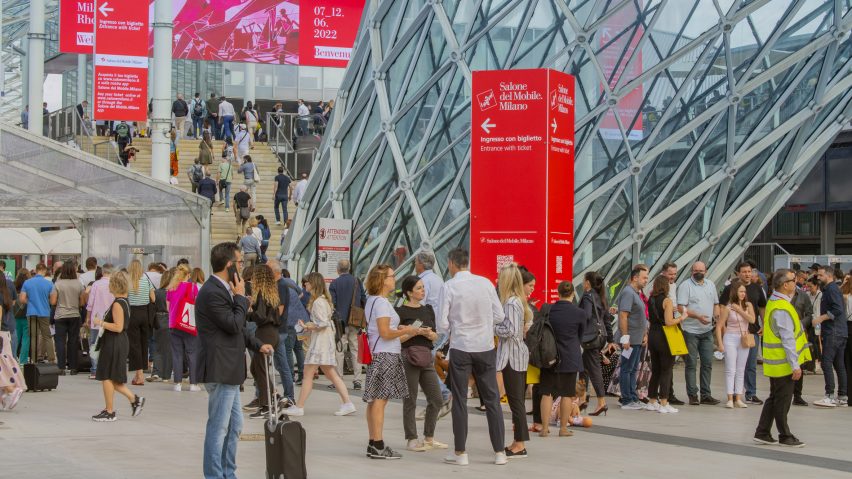
Milan design week energy "exceeded the pre-pandemic level"
This year's Milan design week pushed the annual event back to the top of the design calendar and put the Milanese city back on the map, according to designers exhibiting at Salone del Mobile and the fuorisalone events around the city.
"I sensed an incredible energy in Milan that even exceeded the pre-pandemic level," Italian architect Carlo Ratti told Dezeen.
"It feels like this back to full tilt right now," said British designer Tom Dixon. "I can't believe the amount of people who've turned up."
"There was a feeling of incredible energy and vitality in Milan this year, also thanks to the summery June weather," said Joseph Grima, co-founder of the Alcova platform, which was one of the most talked-about shows this year.
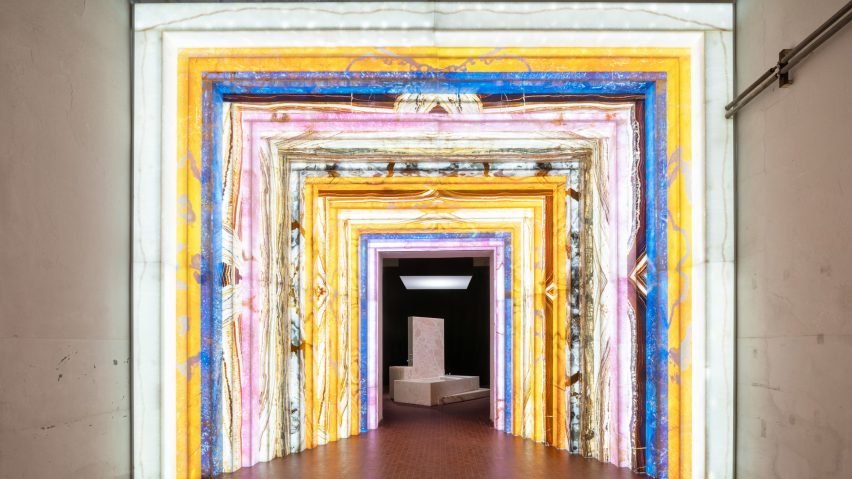
Due to the latest Covid-19 wave, Milan design week was moved from its usual April slot. Instead, it took place from 7 to 12 June when temperatures regularly hit 35 degrees.
"The heat was exhausting," said Conrad and Partners interior designer and architect Tina Norden. "I can see why they usually hold the fair in April."
Bar Basso, the iconic late-night bar, "pretty much felt the same" as it did in 2019 according to British designer Bethan Laura Wood.
Salone del Mobile turnout "beyond expectations"
Over 2,175 brands and 262,608 visitors flocked to the 60th edition of the Salone del Mobile, the furniture fair that anchors the week.
This is still markedly down from the numbers seen at Salone's last full-scale iteration in April 2019, when 2,418 exhibitors and 386,236 visitors from 181 countries attended the fair.
However, Salone organisers said this year's turnout was "beyond expectations".
"The attendance of visitors is an outstanding result, which we have worked so hard to attain," said president of the Salone del Mobile Maria Porro.
"We are a driving force that has revitalized the city, with which we always have a very close relationship," she said. "We hope that this edition has given a new impetus to the sector and to Milan."
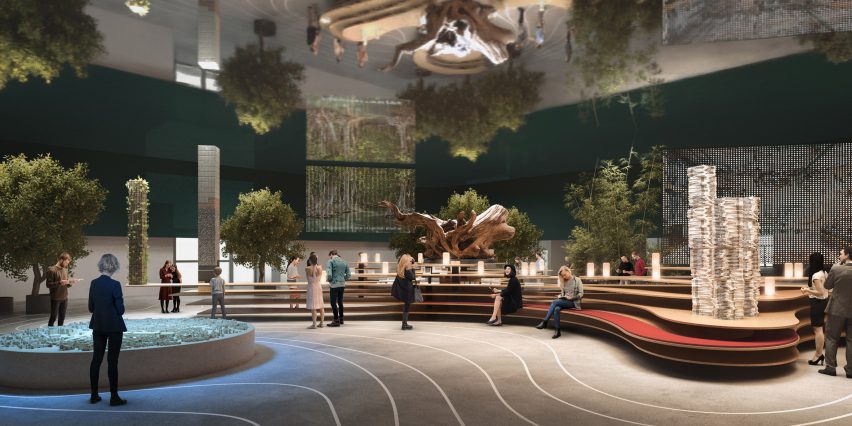
With most travel restrictions lifted, visitors from the USA were able to fly to Europe for the first time in over two years.
However, Chinese visitors were absent this year due to ongoing lockdowns, Russians were unable to travel due to the war in Ukraine while many Danish brands stayed home preparing to exhibit the following week at 3 Days of Design in Copenhagen.
Next year, Salone del Mobile will return to its regular spring slot and take place from 18 to 23 April.
Milan re-established as a design hub
But the return of other international visitors reestablished the Italian city as a design hub and a symbol that Italy's design industry has reopened for business after the pandemic-induced hiatus, said exhibitors.
"Those who predicted that coronavirus would kill the city had underestimated the desire of people to spend time together in narrow, overcrowded streets," Ratti explained.
"Even though many of the Asian visitors who would normally have been present were missing, there was a sense of a conscious attempt being made to look towards the future and put the past couple of years behind us," said co-founder of Alcova Valentina Ciuffi.
"The mood at Alcova was optimistic – we had 90 exhibitors and it was great to hear positive feedback from all of them after a very successful week. It was also great to see so many friends who we hadn't seen for years exploring the site and meeting new people."
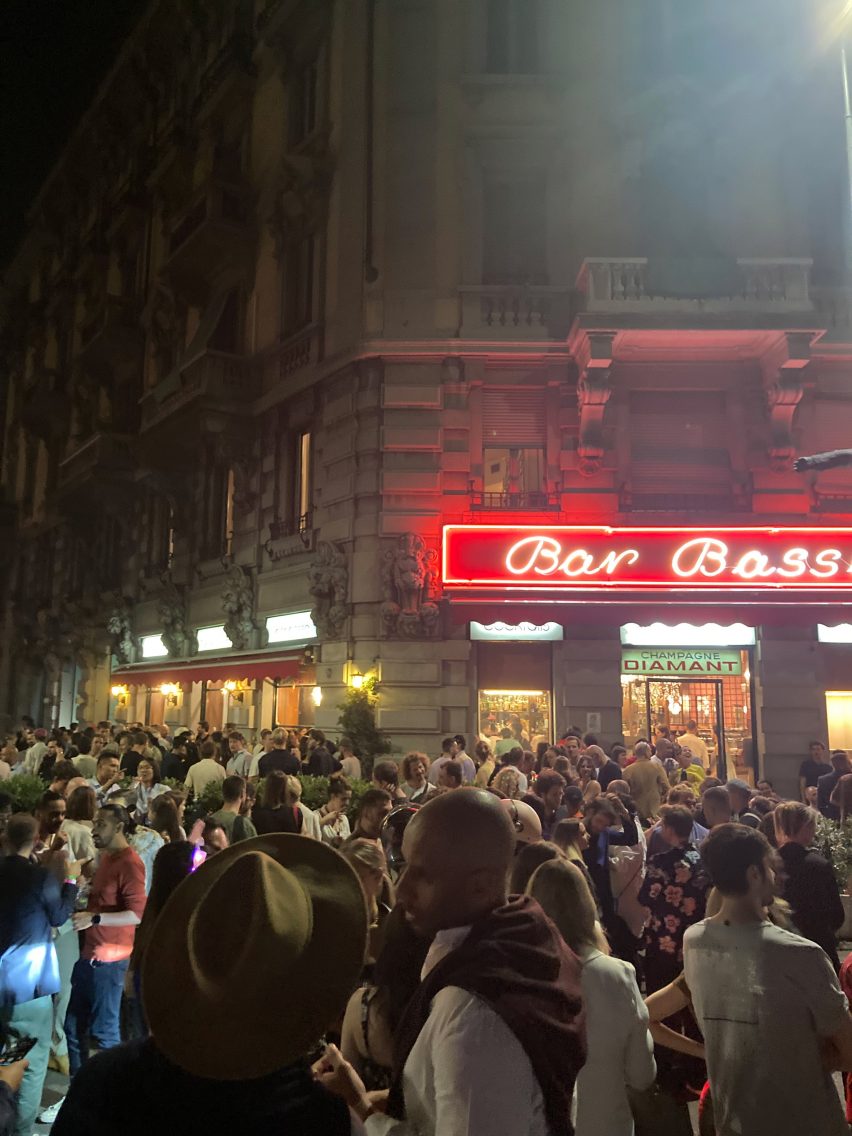
"Taking part in a design week back in full shape after the years of the pandemic was certainly regenerating and energising for the whole sector, but also for the city of Milan," added furniture brand B&B Italia's chief executive officer Gilberton Negrini.
IKEA's chief creative officer Marcus Engman similarly felt that the design week gave new life to the city, citing the dispersed format of Fuorisalone, the collective name for events that take place across the city, as an important factor.
"Milan has been as welcoming as ever and you can sense that it is a city that is glad to come to life again," he told Dezeen.
"Fuorisalone engages with the soul of the city to bring design in direct contact with urban life."
"It's great to finally be able to present work in a physical form"
Others noted that the week reminded them of the importance of physical connection, contradicting the belief that virtual reality and digital architecture and design events would replace the physical.
"After two years of digital and smaller-scale events, it's great to finally be able to present work in a physical form too," said lighting designer Lee Broom.
"It's an amazing shared experience to bring the world back together, and share the experience of seeing what's been done in the last three years," Kohler's chief executive officer David Kohler told Dezeen.
"It's really nice to be back and interacting with people," said Snøhetta architect Henry Stephens. "I meet so many different people that come through from all sorts of backgrounds."
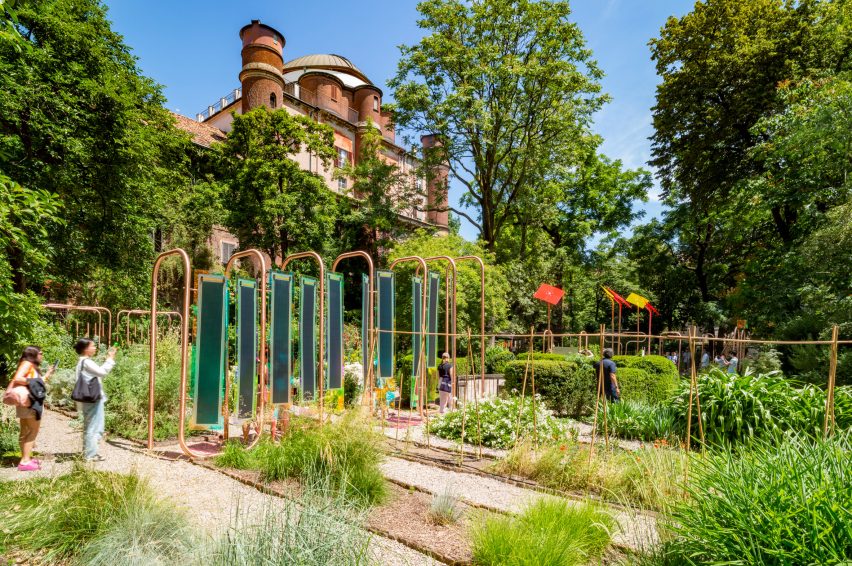
Some attendees missed the feel of last September's low-key fair, which saw a cut-down version of the Salone del Mobile take place.
"Last year you felt like it was more intimate, like more of an industry thing," Lebanese designer Khaled El Mays told Dezeen. "Now, you feel like the whole city is involved."
"We were here in September but it was still a very different feeling," agreed lighting brand Louis Poulsen. "There were many more restrictions and so forth. Now it feels like life is coming back and the city is so busy," the Danish brand added.
"It seems real, genuine and vintage again," chimed brand consultant Jovan Jelovac. "We are super happy that also the Furisalone is being reestablished to its full blow."
Jelovac also noted that the cobbled streets of design district Brera were "absolutely bursting."
Although designers were pleased to return to a full-size fair again, some such as Singapore-based designer Gabriel Tan said that the two-year hiatus was necessary to help everything "reset".
"There is a lot more questioning or reflection in some of the things that the brands are trying to do and also maybe some restraint," Tan told Dezeen. "So in that sense, it's been good for the market and hopefully this reset is good for us."
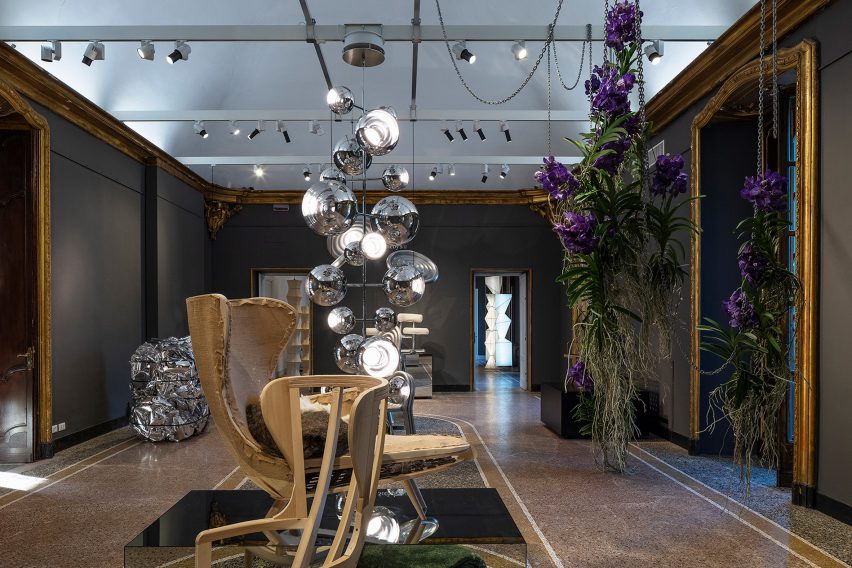
Co-founder of design studio Ronan & Erwan Bouroullec Ronan Bouroullec hoped that the break caused by the pandemic would prompt Milan design week to evolve into a more sustainable event in the future.
"I hope there will be an evolution and maybe there will be a bit more of a selection, a new way to present that consumes less material and energy," Bouroullec said. "To have it every two years would be a good idea," he told Dezeen.
Wood similarly hopes that the break will be beneficial for the design industry.
"We may be able hopefully, to also pull back from the knee jerk, just to go straight back and find and understand that better balance, and take from some of the things that we got from the positive things that you can find from the pandemic," she said.
Supply chain issues impacted exhibitors
Though the mood was generally positive, some designers noted that they had experienced supply issues that affected their shows in Milan.
Jelovac said that sourcing materials from China was taking unusually longer than normal.
"We are a hardware company and a lot of things in technology are being developed and or at least channelled through China," he said.
"You can no longer have overnight shipments, you have to come up with weeks and weeks of waiting in order in time."
Elsewhere, Tan claimed that rising inflation and costs made it more difficult to ship material for his new Japanese brand Ariake, which made its debut at Milan this year.
"In Japan, the problem they face is like huge inflation of raw material prices, because the wood is imported. Prices have become 10 times as expensive."
"You ship the oak here in Japan and then after the furniture is made you have to ship it back to Europe," he said. "It doesn't make sense any more because the price is so inflated."
Several other trade fairs are also returning to their pre-pandemic capacities this year.
Copenhagen's 3 Days of Design, which was moved to 15-17 June to avoid clashing with Milan design week, aimed to return some form of normality after two years of disruption. In Cologne, the biannual office furniture trade fair Orgatec, which was cancelled in 2020, will take place this October for the first time since 2018.
Meanwhile trade fair Design Shanghai has rescheduled this year's event as the city is in lockdown following a coronavirus outbreak. The show will now take place from 13 to 15 October.
Milan design week took place from 6 to 12 June 2022 in Milan, Italy. See Dezeen Events Guide for an up-to-date list of architecture and design events taking place around the world.
Dezeen is on WeChat!
Click here to read the Chinese version of this article on Dezeen's official WeChat account, where we publish daily architecture and design news and projects in Simplified Chinese.